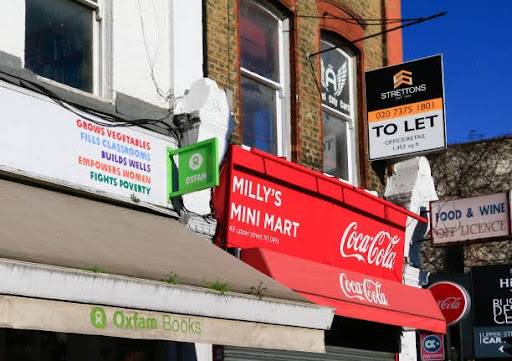
Introduction
In the age of digital media, it is crucial for companies to make good use of online marketing to reach their target audience.. Google Maps has become a valuable tool for businesses to enhance their local visibility and attract potential customers. To make the most out of Google Maps marketing, one crucial aspect to consider is selecting the right keywords that resonate with your business and its offerings. In this post, we will explore effective strategies to find the perfect keywords to optimize your business’ Google Maps marketing efforts.
Understanding the Importance of Keywords
Keywords play a pivotal role in search engine optimization (SEO) as they help search engines understand the relevance of your business to users’ queries. When it comes to Google Maps marketing, incorporating relevant keywords into your business listing can significantly improve its visibility in local search results. By using the right keywords, you increase the chances of your business appearing in the top search results, attracting more potential customers and driving traffic to your physical location.
Conducting Keyword Research
To find the most suitable keywords for your business’ Google Maps marketing, thorough keyword research is vital. Here are some effective steps to guide you:
- Expanding Your List
Expand your keyword list by utilizing various keyword research tools. Tools like Google’s Keyword Planner, SEMrush, and Moz’s Keyword Explorer can provide valuable insights into search volume, competition, and related keywords. These tools help you discover additional keywords that you may have overlooked during brainstorming.
2. Analyzing Competitors
Analyze your competitors’ online presence, especially those who rank well in Google Maps searches. Identify the keywords they are targeting and incorporate similar terms into your keyword list. This strategy can help you understand the landscape and find opportunities to outperform your competitors.

3. Brainstorm Relevant Keywords
Once you have identified your target audience, brainstorm a list of relevant keywords that they are likely to use. Think about the products or services you offer and the specific terms that describe them. Use tools like Google Autocomplete, Google Trends, and Keyword Planner to get keyword ideas. Below are some of the relevant keywords ideas: Google Maps, Local search, Local SEO, Online maps, Google My Business, Local listings, Location-based marketing, Geographic targeting, Business listings, Online directories, Geotagging, Reviews and ratings, Local customer engagement, Mobile search, Google Street View, Location-based advertising, Local business optimization.

Selecting the Right Keywords
Now that you have a comprehensive keyword list, it’s time to select the most appropriate keywords for your business’ Google Maps marketing. Here are some key factors to consider:
Now that you have a comprehensive keyword list, it’s time to select the most appropriate keywords for your business’ Google Maps marketing. Here are some key factors to consider:
- Relevance
Choose keywords that are highly relevant to your business and its offerings. Ensure that the selected keywords accurately reflect what your business provides, ensuring a better match between user intent and your business listing.
- Search Volume
Pay attention to the search volume of your chosen keywords. Select keywords that have a reasonable search volume to maximize your chances of being discovered by potential customers. However, be cautious of highly competitive keywords, as they may make it difficult for your business to stand out among the crowd.
- Location-Specific Keywords
If your business operates in a specific area, consider incorporating location-specific keywords into your Google Maps marketing strategy. This approach helps target local customers who are more likely to convert into actual visitors or customers.
- 4. Long-Tail Keywords
Long-tail keywords are specific phrases that typically have lower search volume but higher intent. Including long-tail keywords in your strategy can attract more qualified leads, as these users are often closer to making a purchasing decision

Implementing Keywords in Your Google Maps Marketing
Once you have selected the most suitable keywords, it’s time to implement them effectively into your Google Maps marketing strategy. Here are
1. Business Name and Description
Ensure that your business name and description on Google Maps include relevant keywords. Incorporate your primary keyword naturally into the business name and craft a compelling description that accurately represents your offerings while incorporating other important keywords.
2. Categories and Attributes
Select the most appropriate categories for your business on Google Maps. These categories help Google understand your business and improve its visibility. Additionally, take advantage of attributes to highlight specific features or services offered by your business.
3. Customer Reviews
Encourage satisfied customers to leave reviews on your Google Maps listing. Positive reviews not only boost your reputation but also provide valuable keywords in user-generated content. Monitor and respond to reviews promptly to engage with customers and showcase your commitment to excellent service.
4. Website Optimization
If your business has a website, optimize it for local search and incorporate your chosen keywords. Optimize title tags, meta descriptions, headings, and content with relevant keywords to enhance the overall visibility of your website in search engine results.
5. Citations and Online Directories
Consistency is key when it comes to citations and online directories. Ensure that your business name, address, and phone number (NAP) are consistent across all platforms. Submit your business to reputable online directories to increase its online presence and improve local search rankings.
6. Local Link Building
Develop a local link-building strategy to establish your business as an authority in your area. Seek opportunities to collaborate with local organizations, sponsor events, or contribute guest posts to local blogs. These efforts can help generate valuable backlinks and improve your business’ visibility in local searches.
7. Regular Monitoring and Analysis
Continuously monitor your Google Maps performance and analyze the impact of your chosen keywords. Utilize tools like Google Analytics and Google Search Console to gain insights into user behavior, search queries, and the effectiveness of your optimization efforts. Make necessary adjustments based on the data to optimize your Google Maps marketing strategy further.
conclusion
By implementing these strategies and selecting the right keywords, you can maximize your business’ visibility on Google Maps and attract more potential customers to your doorstep. Stay proactive, adapt to changing trends, and consistently optimize your Google Maps presence to stay ahead of the competition in the digital landscape. Remember, finding the right keywords is just the beginning. you can contact our experts at localseogmbmarketing to you. Regular evaluation and refinement of your Google Maps marketing strategy are essential to ensure long-term success.








